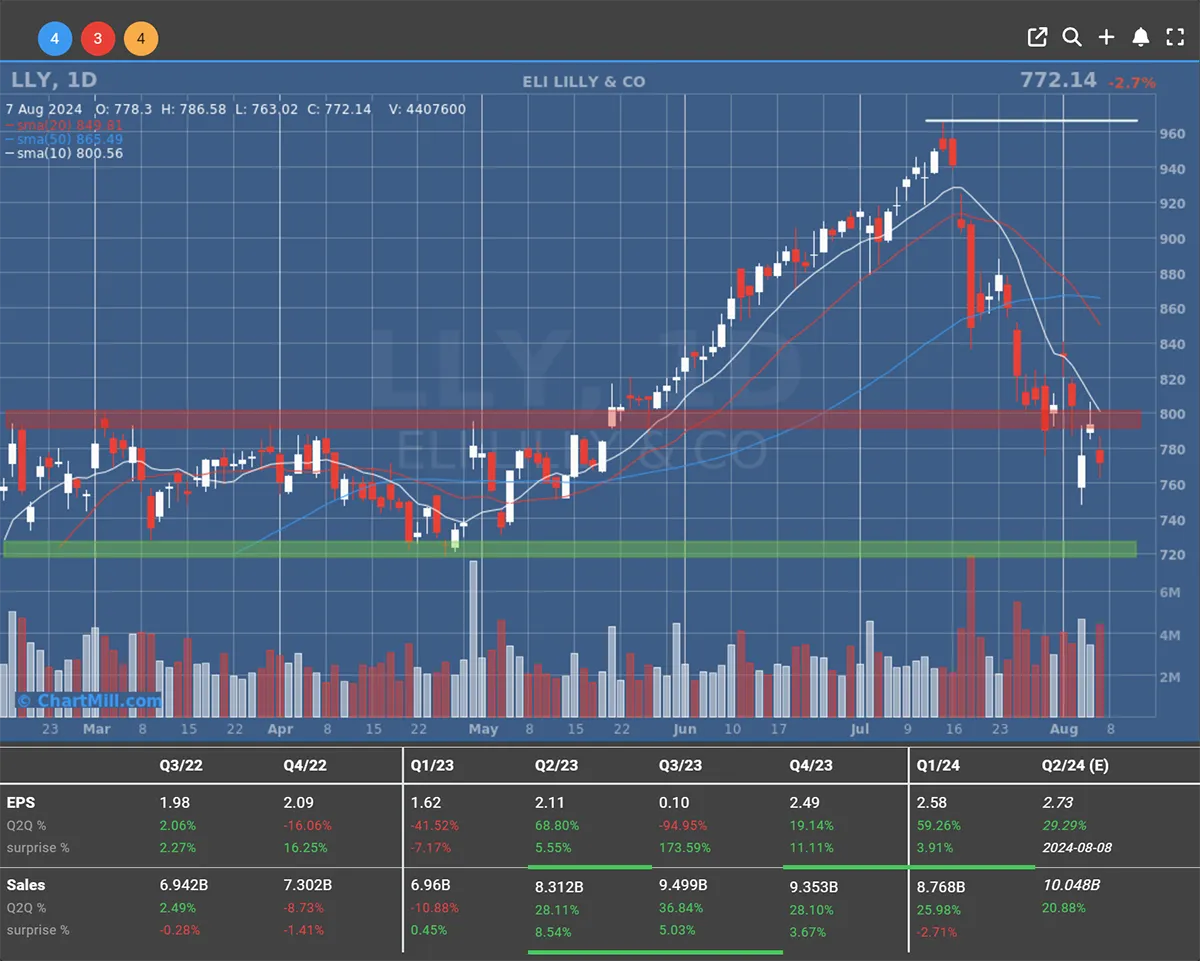
Eli Lilly, an American pharmaceutical company with a history dating back to 1876, has grown into the world's most valuable drug manufacturer. This success is primarily attributed to its strong position in the booming markets for diabetes and obesity, where the company has developed competitive medications that rival Novo Nordisk's popular products, such as Ozempic.
With drugs like Mounjaro and Zepbound, Eli Lilly has achieved significant success and managed to increase its market share in this rapidly expanding sector.
In addition to its success in diabetes and obesity, Eli Lilly has recently expanded its portfolio with Kisunla, a new drug aimed at treating Alzheimer's disease. This new product opens a potentially very lucrative market for the company and demonstrates that Eli Lilly remains committed to developing innovative treatments across multiple medical fields.
The company is heavily investing in research and development to maintain and expand its leading position, focusing on both internal innovation and expanding production capacity.
In the coming weeks, Eli Lilly's half-year financial results are expected to provide further insights into the company's growth and potential adjustments to its revenue forecasts for the current year.
Financial analysts' key estimates are:
- Q2 EPS Estimate: $2.73 (+29.29%)
- Q2 Sales Estimate: $10.05 billion (+20.88%)
Eli Lilly had already raised its revenue forecast for 2024 by $2 billion, bringing it to around $43 billion, and it is likely that the company will further increase these projections thanks in part to the strong demand for its successful medications.

Meanwhile, Eli Lilly is actively working on developing new generations of its existing drugs, aiming to strengthen its market leadership and defend against increasing competition.
The company is also looking beyond just diabetes and obesity. Significant investments are being made in other therapeutic areas, such as cancer treatment. Recently, Eli Lilly entered into a collaboration agreement with Radionetics and last year acquired the American company Point Biopharma to develop new, innovative cancer treatments.
This focus on diversifying its product offerings and investing in emerging medical technologies underscores its strategic vision to bring a broad range of life-changing medications to market.









